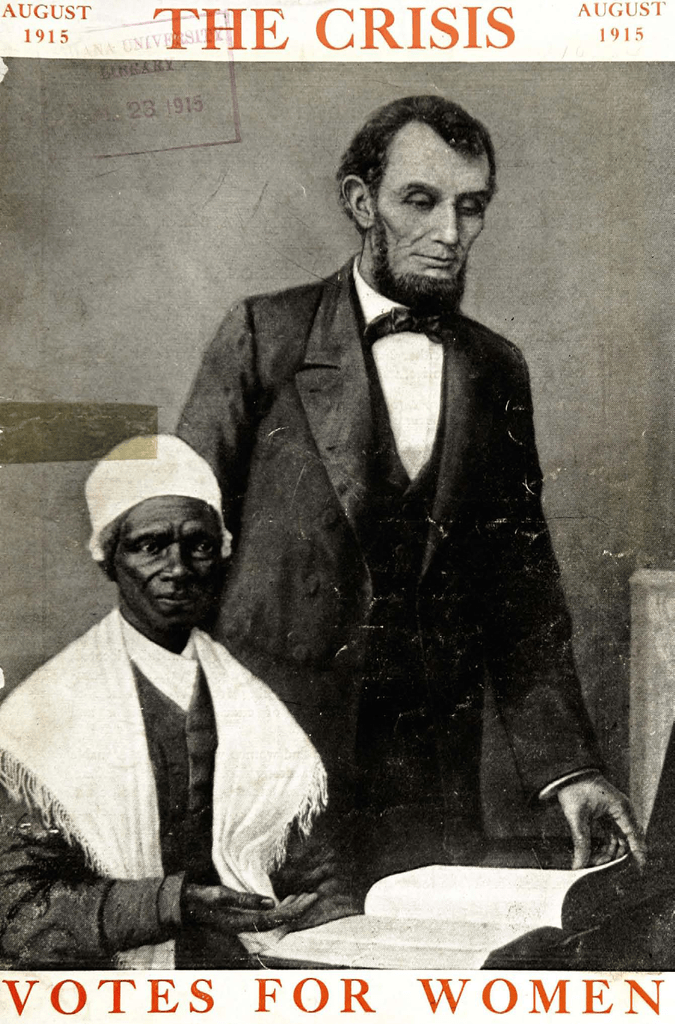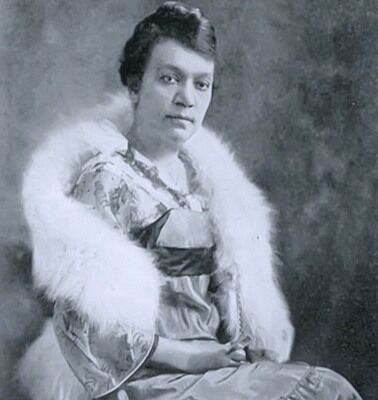Coralie Franklin Cook was an advocate for women’s suffrage and education. She was a founder of the National Association of Colored Women (NACW) and held membership in the National American Woman Suffrage Association (NAWSA).
Franklin Cook was an exceptional reader and public speaker. She graduated from Storer College in 1880, after which, she taught elocution and English. She became the second African American woman to serve on the Board of Education in Washington, D.C., which she served on for 12 years.
In 1902, Franklin Cook was invited to speak at the Unitarian Church for the Democrat and Chronicle of Rochester, New York’s Political Equality Club. She praised the efforts of the Women’s Suffrage Movement, but also felt it ignored the plight of the black woman. In her speech, Franklin Cook addressed Susan B. Anthony, saying, “… and so Miss Anthony, in behalf of the hundreds of colored women who wait and hope with you for the day when the ballot shall be in the hands of every intelligent woman; and also in behalf of the thousands who sit in darkness and whose condition we shall expect those ballots to better, whether they be in the hands of white women or Black, I offer you my warmest gratitude and congratulations.”
In 1915, Franklin Cook published “Votes for Mothers” in the NAACP’s magazine, The Crisis.
“I wonder if anybody in all this great world ever thought to consider man’s rights as an individual, by his status as a father? yet you ask me to say something about ‘Votes for Mothers,’ as if mothers were a separate and peculiar people. After all, I think you are not so far wrong. Mothers are different, or ought to be different, from other folk. The woman who smilingly goes out, willing to meet the Death Angel, that a child may be born, comes back from that journey, not only the mother of her own adored babe, but a near-mother to all other children. As she serves that little one, there grows within her a passion to serve humanity; not race, not class, not sex, but God’s creatures as he has sent them to earth.
It is not strange that enlightened womanhood has so far broken its chains as to be able to know that to perform such service, woman should help both to make and to administer the laws under which she lives, should feel responsible for the conduct of educational systems, charitable and correctional institutions, public sanitation and municipal ordinances in general. Who should be more competent to control the presence of bar rooms and ‘red-light districts’ than mothers whose sons they are meant to lure to degradation and death? Who knows better than the girl’s mother at what age the girl may legally barter her own body? Surely not the men who have put upon our statute books, 16, 14, 12, aye be it to their eternal shame, even 10 and 8 years, as ‘the age of consent!’The Crisis, 10, August 1915
If men could choose their own mothers, would they choose free women or bondwomen? Disfranchisement because of sex is curiously like disfranchisement because of color. It cripples the individual, it handicaps progress, it sets a limitation upon mental and spiritual development. I grow in breadth, in vision, in the power to do, just in proportion as I use the capacities with which Nature, the All-Mother, has endowed me. I transmit to the child who is bone of my bone, flesh of my flesh and thought of my thought; somewhat of my own power or weakness. Is not the voice which is crying out for ‘Votes for Mothers’ the Spirit of the Age crying out for the Rights of Children?”

Women won the right to vote in 1920, but that right did not extend to women of color. Disheartened by the lack of empathy from her white peers, Franklin Cook left NAWSA, stating it, “had turned its back on the woman of color.” After leaving, Franklin Cook focused on empowering African-Americans and fighting racial inequality.

